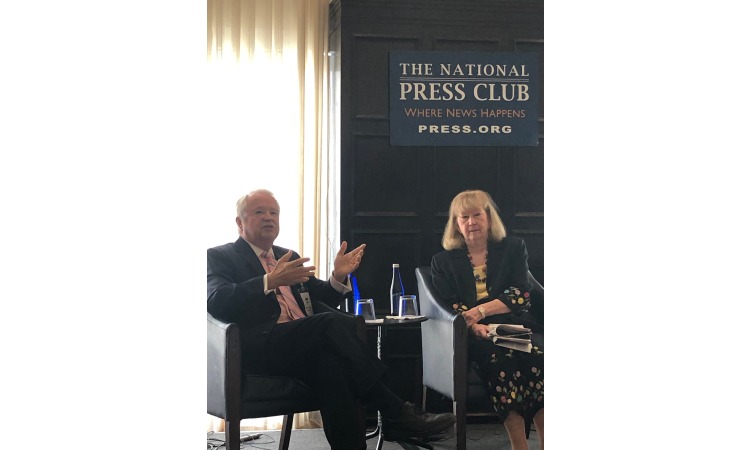Aug. 19, 2019 – As presidential hopefuls discuss the possible merits of “Medicare for All” and other healthcare reforms, discourse in the nation’s capital has deteriorated to the point where “no one talks to each other,” according to Kay Holcombe, who recently retired as senior vice president for science policy at the Biotechnology Innovation Organization. As such, “it’s difficult to envision that we could get there without that dialogue.”
Speaking recently at the Coalition for Healthcare Communication (CHC) Rising Leaders Conference on Healthcare Policy in Washington, D.C., Holcombe observed that today’s political environment is “so hostile and nasty, that it’s gotten to where we can’t even have a conversation with someone with whom we disagree.” However, she told attendees that “it is possible to disagree without being disagreeable.”
CHC Washington Counsel John Kamp, the session moderator, asked Holcombe whether a Republican victory in 2020 would result in the end of the Affordable Care Act (ACA), considering the efforts made thus far by the Trump administration to “repeal and replace” the law. “You can’t repeal the ACA because there are things in it that people have benefitted from and really like,” Holcombe responded, such as keeping adult children on their parents’ health plan until the age of 26 and protecting people with pre-existing conditions.
That said, Holcombe continued, the linchpin of the ACA is that everyone must have health insurance or pay a penalty if they do not have health insurance. “If you do away with the mandatory insurance provisions, the whole thing will fall apart, because the insurance industry will not be able to afford to provide policies to people with pre-existing conditions, for example … they won’t have a big enough risk pool.”
Holcombe told Rising Leaders attendees that for all healthcare matters, entities wanting to share their voices and perspectives with members of Congress should reach out to their one House member and two Senators and find out who their healthcare staffers are. “I think it’s a good idea to build relationships with people who potentially could help you or at least are willing to listen to you or tell you that what you are saying or how you are saying it is not the best approach,” she said.
“I think staffers are incredibly and shockingly important on Capitol Hill. Talking to a member of Congress may or may not make a big ripple, but talking to staffers makes a huge difference,” she continued. “They are the people who actually [capture] the stuff to put into a bill or an amendment. They also will tell you whether their boss is going to be able to help you or not – they will be fair with you and honest with you. It’s valuable to talk to them, whether they say yes or not.”
Kamp also asked Holcombe whether it is wise for companies to ask members of Congress to intervene on their behalf with the FDA. Although congressional committee staff work for the whole committee, and they usually don’t want to get involved in these matters because they represent more than one member of Congress, “staffers for a member of Congress who represents district or a senator who represents a state have a certain level of obligation to try to be helpful to their constituents,” Holcombe said.
However, “there are members and senators who will say straight out that they are not going to interfere or look like they are interfering with the decisions made by an agency that is scientific in nature, so with respect to the FDA, [they may not] want to write a letter asking the FDA to hurry up and approve this product,” she remarked.
Holcombe also noted that those who are reaching out to members of Congress or their staffers should be aware that these individuals are “more likely to answer email than a phone call.”




